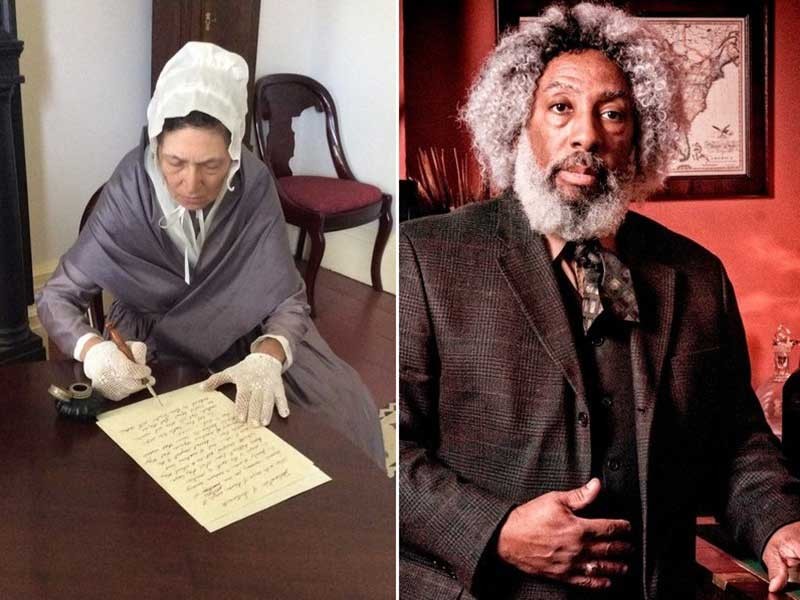Living history performance offers fresh perspective
Living historians Renee-Noelle Felice and Nathan Richardson step into the shoes of prominent anti-slavery and women’s rights advocates Lucretia Mott and Frederick Douglass to commemorate their contributions in U.S. history. Their performance is part of the annual Bennion Teachers Workshop hosted by the Mountain West Center.
Co-directed by Utah State University professors Cathy Ferrand Bullock and Candi Carter Olson, the themes this year revolve around gender, media, and suffrage
The workshop is intended to inspire local educators with new and unique ways to approach history lessons in the classroom.
The key, according to Richardson, is creativity and playing off the audience. When he performs, his goal is to “bring the vernacular of the character to capture the imagination of the audience.”
Bullock says she is excited for the performance because it is “a fresh way to look at this slice of history.”
Felice and Richardson are from the East Coast and have never visited Utah before. They say they are excited for the opportunity to perform at this commemorative event.
“There wasn’t anywhere in the country I would rather have gone,” said Felice.
The living historians work, study, and rehearse intensely to understand their characters as personally as possible which they say makes their interactions with each other and with audiences accurate and engaging.
Richardson says that this is one of the most fun and important parts of the work.
“You never know what you’ll be asked,” he said. “No conversation is ever the same.”
Traditionally, the performance begins with an interaction between the historians themselves and becomes more interactive as they take questions from the audience.
Felice and Richardson have worked with each other in the past, most notably at annual Seneca Falls Conventions in New York, and have a standing friendship. They say that it enriches their performance style because it makes their interactions very natural.
It was also very natural for each historian in choosing what figure to portray.
Richardson felt drawn to Frederick Douglass for a variety of reasons. As a published poet, he has a special appreciation for the stylistic language and phrasing in the works and speeches of Douglass he studies.
Taking on the role of Lucretia Mott was not originally what Felice had planned, but once she did at a celebratory anniversary of the famous Seneca Falls Convention of 1848, she found that she enjoyed it very much.
Felice hopes those who watch the live history performances will gain an appreciation for the men and women who have sacrificed so much in the past for our benefit today.
“You need to really understand what you’ve gained so you know what you have to lose,” she said.
Felice and Richardson hope that those who watch the performance leave energized to become a force for good and eager to learn more about these figures and their work.
These living historians have a unique perspective on the societal legacy that Lucretia Mott, Frederick Douglass, and countless other historical figures have left.
“They wanted to change the world,” Felice said. “Everyone said they couldn’t, but they didn’t believe it for a minute.”
Felice and Richardson aim to help people look to the past so they can better prepare for and change the future, and help perpetuate the legacies of these historical figures.
—sladeabigail@aggiemail.usu.edu
@sladeabigail

